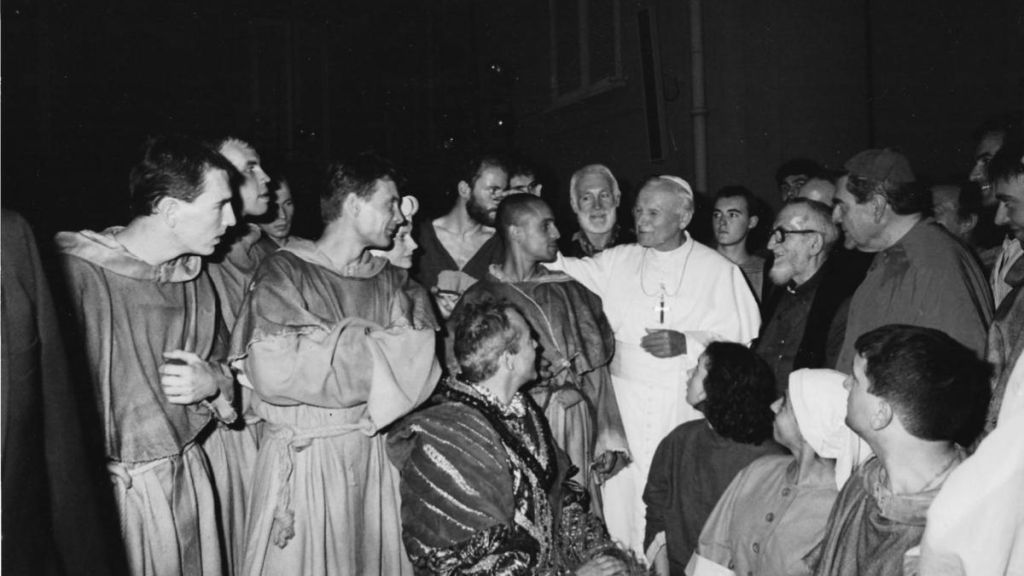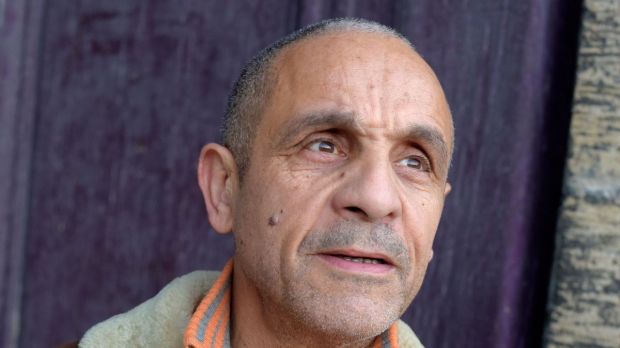Djamel chose Christ after meeting the “Poverello,” St. Francis, by chance in a play. This actor and director, now also the founder of a theater company, has come a long way, by his own account. “I feel like I’ve received a miracle,” he tells Aleteia. Miraculously saved from loneliness, abandonment, and exclusion: yes, Djamel has indeed received a miracle. He is living proof that faith saves.
A difficult childhood
Born in Vienna in 1959 to Algerian parents who had fled the war of independence, Djamel Guesmi grew up in a discreetly practicing Muslim family. “My parents didn’t impose anything on me. They were people of faith, but they didn’t try to impose any kind of straitjacket on us,” recalls Djamel with emotion.
As he grew up, the little boy struggled with his academic difficulties. Chosen for a vocational course in the sixth grade, he struggled to express himself and suffered from a stammer. He couldn’t read or write, and never graduated. The feeling of failure that gripped him never let him go, an inner cry he describes as “silent dismay.”
As a teenager, Djamel went from one police station to another, accused of acts of which he claimed to be innocent: burglary, theft of a wallet, gang sexual abuse of a young girl… He received a suspended prison sentence for the first two offenses, but was not convicted of the third.
Running away from home
At the age of 16, he passed a point of no return. The young man decided to leave everything behind and set off for Paris with no plan. He left without looking back, and without telling his family, who declared him missing. “I’d reached such a dead end that running away was my only salvation,” he explains. “I had no social ties, no professional prospects. I was on my own. But I know that a protective hand was already working in my favor at that time, even if I didn’t know it yet.”
Djamel tried to carve out a path for himself in the hustle and bustle of Paris but found himself dragged down the winding road of male prostitution. Drugs were common in that setting. While he didn’t manage to avoid the former, a profound inner drive prevented him from falling into drug abuse. “When I was offered heroin, I said to myself: ‘If I touch it, I’ll die’. And my father’s face appeared to me for a split second. I stepped back. This salutary restraint proved to me that I was still aware of right and wrong despite the ordeal.”
Saved by Christ’s “Poverello”
He often entered churches, and stayed there, sometimes for a long time. “I found an inexplicable sweetness there,” he says, his voice suddenly breaking. “I didn’t understand Christ, I didn’t see the connection between this serenity and the Cross. But how sweet it was!”
After seven years of a succession of odd jobs, Djamel walked through the door of an acting course at a school run by French actor and director Jean-Laurent Cochet. “I had in mind the idea of doing something in public. I’m not sure what brought me here,” smiles Djamel. “It was a totally foreign world, and I still had great difficulty speaking and reading.”
The young man set about learning French seriously, noting down the words he didn’t understand, grabbing a dictionary and learning them by heart. “Theater cured me of the feeling of being walled up alive,” says Djamel. His stammer faded away, and his speech was freed up.
Eager to understand the references to Christianity that abound in French literature, Djamel read the Gospels. And then, one day, he had a revelation.
Discovering “The Poor Little Man”
At the age of 24, Djamel discovered Jacques Copeau’s play Le Petit Pauvre (“The Poverello” or “The Poor Little Man”), directly inspired by Johannes Jørgensen’s biography of the saint from Assisi.
“Just beneath the surface, I found the face of Christ,” says Djamel. “Francis’ words were so powerful that I was immediately moved. I felt close to him. I said to myself, ‘Francis has put his footsteps in those of Christ, so if I put my footsteps in his, I too will follow Christ.’ It was extraordinary for a little man like me, because it was the madness of love revealed in all its splendor.”
Djamel decided to stage the play, which he performed for the first time in 1988 with his company in Vézelay, playing the role of Francis. Two years later, he performed it for Pope John Paul II, accompanied by his company’s “godfather,” Fr. Pierre.

After a long journey, Djamel was finally baptized in 1997. “Baptism is a feeling of renewal. What has been, has been, but what remains most important is what is, and what will be. Prayer, Christ’s teachings, the sacraments: I received everything with my body, my heart, and my soul,” testifies Djamel. “Everything I’ve experienced is nothing but grace. In the Gospels, Christ often says: ‘Go, your faith has saved you. I who have suffered, I who have sinned, my faith saves me. I don’t know where it comes from, and I know it’s fragile. But it’s there, and Christ knows it.”



